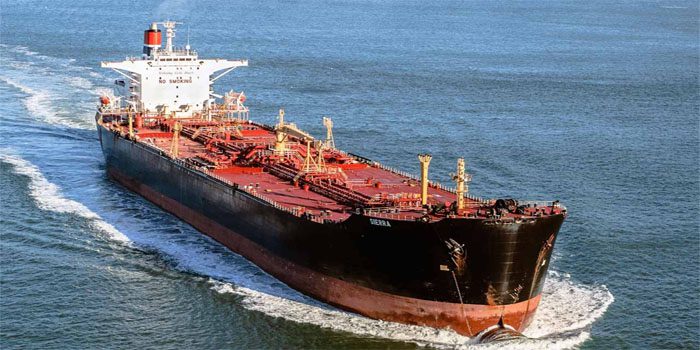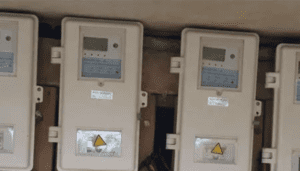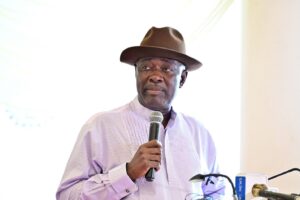
Fuel imports hit 2.3bn litres
Although two significant refineries in Nigeria have commenced petrol production in the last three months, oil marketers have continued to import and distribute petrol across the country.
According to reports on Wednesday, marketers imported a total of 2.3 billion litres of petrol between September 11 and December 5, 2024.
This continued reliance on imports contrasts with earlier announcements by a group of marketers who had pledged to cease petrol imports and focus on supplying the product domestically.
The local refineries involved are the Dangote Petroleum Refinery in Lagos, with a daily production capacity of 650,000 barrels, and the Port Harcourt Refining Company (PHRC) in Rivers State, which has a capacity of 210,000 barrels per day. Currently, PHRC is operating at a reduced capacity of 60,000 barrels per day using its old plant.
The Dangote refinery began producing petrol in September, while the Area 5 facility at the Port Harcourt refinery commenced operations last Tuesday.
However, it was recently discovered that in just the past three days, oil marketers brought 52,000 metric tonnes of petrol into the country.
Since one metric tonne of petrol is equivalent to approximately 1,322.76 litres, this means that 68.74 million litres of imported petrol were delivered to Nigeria over these three days.
For decades, Nigeria has depended on imported petroleum products to meet local demand. This situation persisted even after the Dangote refinery began production in September, due to its limited output and high pricing. During this period, the Nigerian National Petroleum Company Limited (NNPCL) was the sole buyer of petrol from the Dangote refinery.
However, following extensive discussions, the Federal Government issued a statement on October 11, 2024, through the Ministry of Finance, announcing that oil marketers were now free to negotiate the purchase of petrol directly from Dangote refinery without needing to go through NNPCL.
This shift enabled direct negotiations. The Independent Petroleum Marketers Association of Nigeria (IPMAN) has already signed an agreement with the Dangote refinery for the offtake of petrol, with ongoing negotiations with the Petroleum Products Retail Outlets Owners Association of Nigeria.
Amid these developments, oil marketers had promised to end petrol imports and concentrate on domestic supply.
Last week, the National President of PETROAN, Billy Gillis-Harry, noted that members of the association would temporarily suspend petrol imports for the next 180 days, due to the ramp-up of production at the Dangote and Port Harcourt refineries.
Similarly, other major petroleum marketers announced the suspension of petrol imports following the increase in local supply from the Dangote refinery, which has been boosting its output.
At a recent webinar, the association disclosed that it had sourced a total of 148 million litres of petrol from Dangote refinery over the past 10 weeks, marking a significant shift in Nigeria’s fuel supply landscape.
IPMAN, however, has yet to secure an import licence.
Recent findings, based on documents obtained from the Nigerian Ports Authority, revealed that fuel imports have continued. Three vessels carrying petrol have recently berthed at various Nigerian ports: Apapa Port in Lagos, Tin Can Port in Lagos, and the Calabar Port in Cross River State.
An analysis of these documents revealed that on Tuesday, December 3, 2024, a ship named Binta Saleh arrived at Apapa Port carrying 12,000 metric tonnes (15.864 million litres) of petrol, and berthed at 8:12 AM. The vessel was handled by Blue Seas Maritime at the Bulk Oil Plant terminal.
The following day, Wednesday, December 4, 2024, another vessel, Shamal, brought in 20,000 metric tonnes (26.44 million litres) of petrol through Tin Can Port at midnight. The ship was managed by Peak Shipping Agency at Terminal KLT Phase 3a.
Similarly, another vessel, Watson, is expected to bring in 20,000 metric tonnes (26.44 million litres) of refined petrol today (Thursday) at 4:52 PM at Calabar Port, to be handled by Kach Maritime at the Ecomarine Terminal.
This development suggests that recent talks, organised by Mele Kyari, Group CEO of NNPCL, and the Nigerian Midstream and Downstream Petroleum Regulatory Authority, to end petrol imports may not have yielded results.
The discussions, which involved representatives from the Major Oil Marketers Association of Nigeria, the Depot and Petroleum Products Marketers Association of Nigeria, and key companies like 11 Plc, Matrix, and AA Rano, focused on increasing confidence in the Dangote Refinery’s ability to meet Nigeria’s domestic fuel needs and reduce imports.
In September, specifically on September 18, three major oil marketers imported 141 million litres of petrol following the full deregulation of the downstream oil sector by the Federal Government. Each vessel was reported to have delivered about 35,000 metric tonnes of Premium Motor Spirit (PMS), bringing a total of 105,000 metric tonnes (141 million litres).
Between October 1 and November 11, 2024, over two billion litres of petrol were imported by NNPCL and other marketers.
Documents show that NNPCL and its partners imported 1.5 million metric tonnes of PMS, 414,018.764 metric tonnes of diesel, and 13,500 metric tonnes of jet fuel, valued at approximately N3 trillion (or $1.8 billion).
In October, NNPCL and its partners imported a total of 994,446.438 metric tonnes of PMS, with Lagos receiving 555,121.617 metric tonnes, Warri 281,100 metric tonnes, Port Harcourt 94,224.821 metric tonnes, and Calabar 64,000 metric tonnes.
Additionally, 285,518.764 metric tonnes of diesel were imported, with Lagos receiving 162,500 metric tonnes, Warri 58,500 metric tonnes, Port Harcourt 56,018.764 metric tonnes, and Calabar 8,500 metric tonnes.
Between November 1 and November 11, a further 358,083 metric tonnes of PMS, 112,500 metric tonnes of diesel, and 13,500 metric tonnes of aviation fuel were unloaded at Nigerian ports.
Between November 23 and November 28, 78,800 metric tonnes (equivalent to 105.67 million litres) of petrol were also discharged at Nigerian sea borders for distribution.




